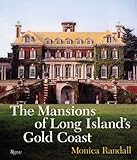 The Gold Coast
The Gold CoastViewed more concretely, the story answers the question: what do you get for someone who has everything? A challenge! ... and risk. The same needs that keep high-stake casinos profitable, bring Susan and John into the lair of Don Bellarosa, and Bellarosa into the trap of U.S. Attorney Ferragamo. The telling of the tale leaves open the possibility that all these conflicts could be imaginary, but in the end, it doesn't really matter.
I found the descriptions and commentary on the super rich and powerful to be stereotypical and cliched, as if the book was written for the 1950s or even the 1930s. However, the stock characters were well-written and served the plot to deliver an engaging tale and a pleasant read. This book will be very enjoyable if it is approached as light reading rather then the social commentary it pretends to offer.


